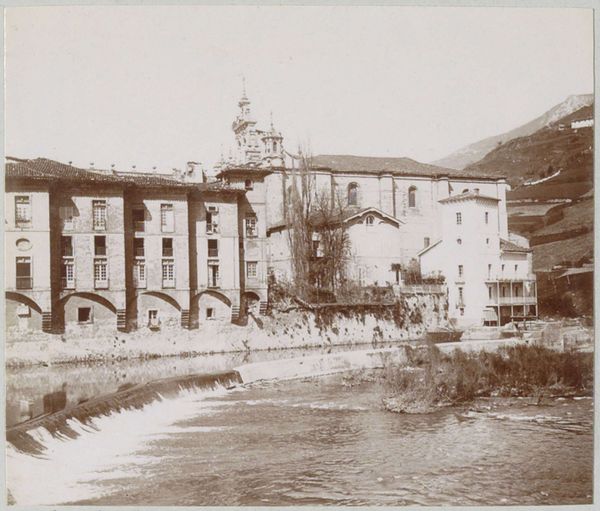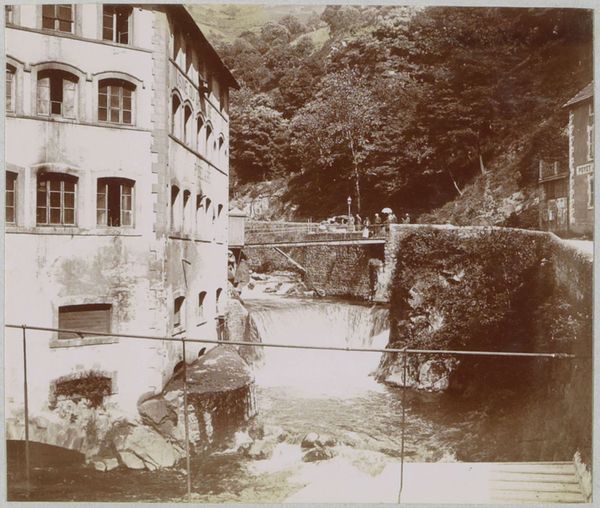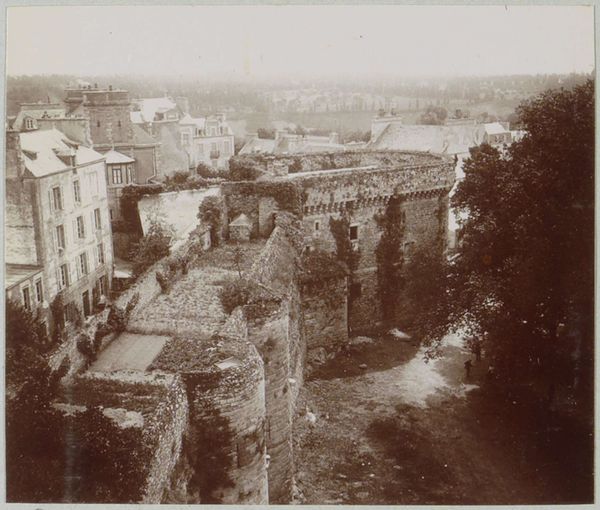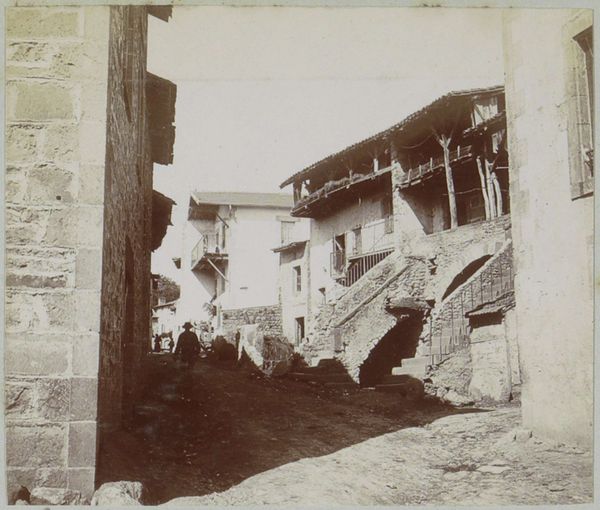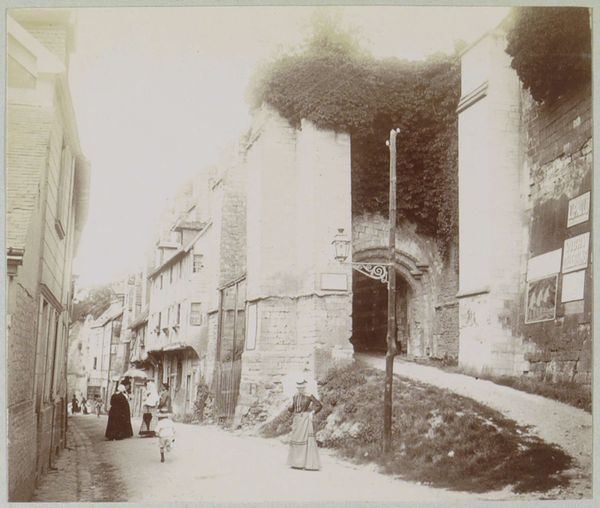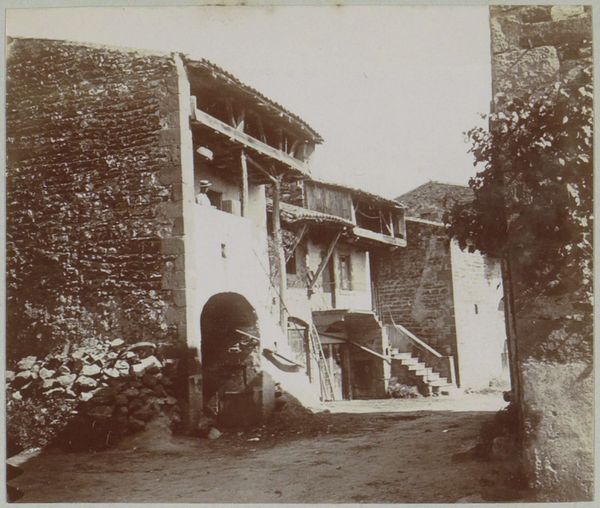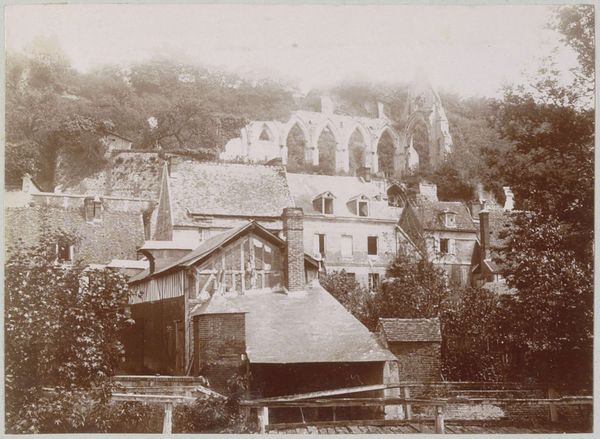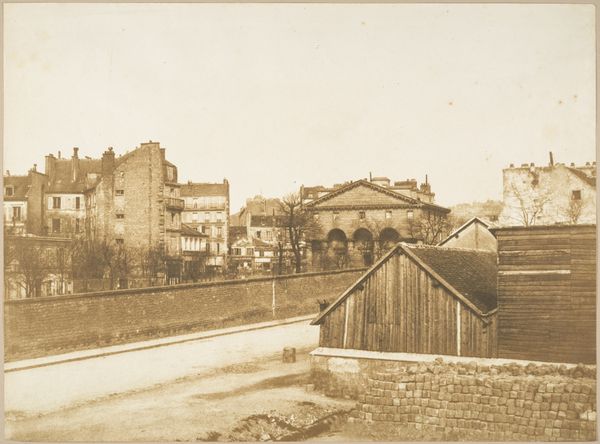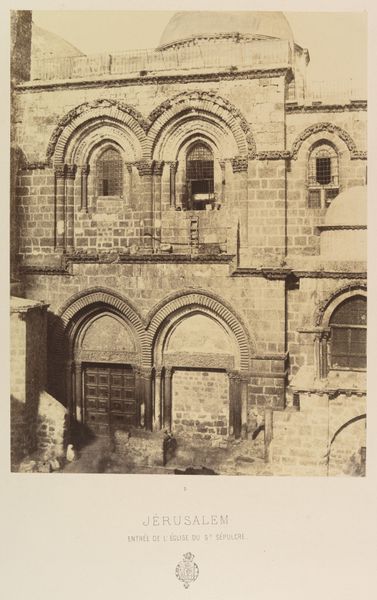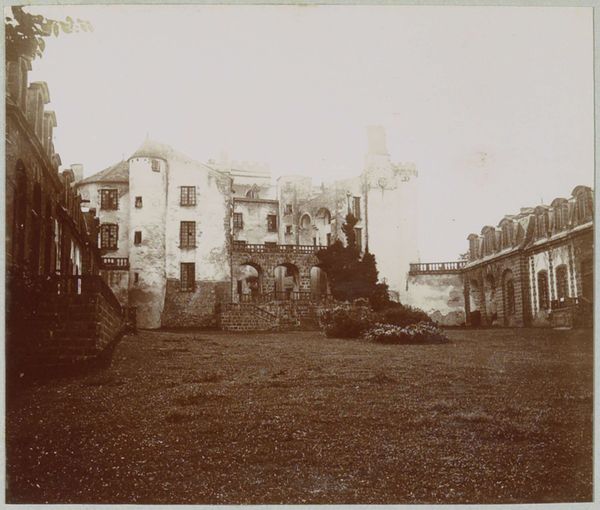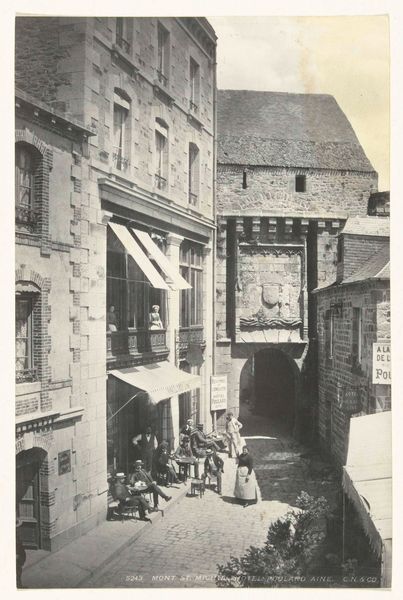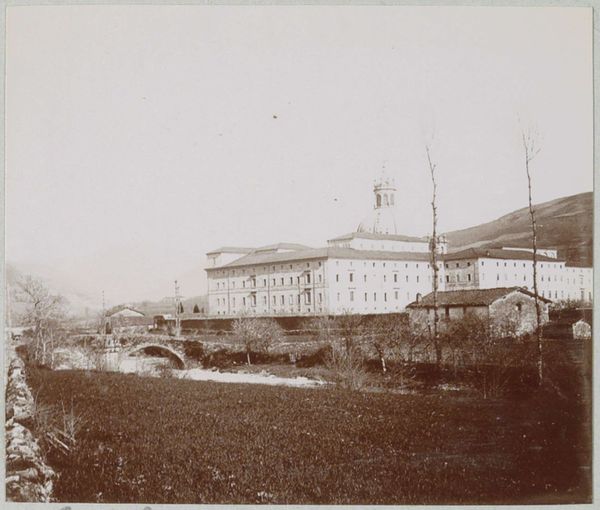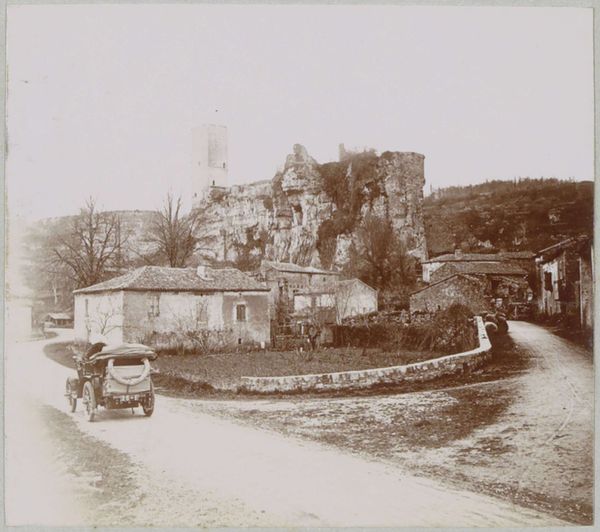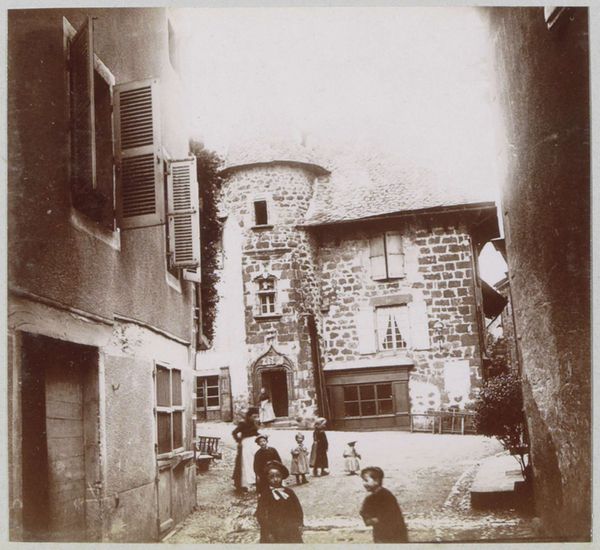
Huizen, brug en waterval in Thiers met rechts een bedrijf voor autoreparatie 1903
0:00
0:00
delizy
Rijksmuseum
print, photography
#
architectural landscape
# print
#
landscape
#
waterfall
#
photography
#
cityscape
#
realism
Dimensions: height 68 mm, width 82 mm
Copyright: Rijks Museum: Open Domain
Curator: This photograph, "Huizen, brug en waterval in Thiers met rechts een bedrijf voor autoreparatie," was taken by Delizy in 1903. It captures a compelling scene, blending the natural and the industrial. What’s your first impression? Editor: The rush of the waterfall against those stark buildings. There’s a kind of melancholic beauty, a tension, in that contrast. It's as if time itself is fractured in the image. The water flowing – always changing – and then the buildings – static symbols of human intention. Curator: Precisely. Delizy’s captured a specific moment of industrial France. Notice how the architecture, that heavy stone and brick, almost seems to grow out of the landscape. Then your eye catches the figures on the bridge – human scale against monumental construction. Editor: The bridge becomes this slender symbolic link between two different realities then— the rushing chaos of nature and the static, oppressive weight of early industrial enterprise. Even the text on the side “Reparations D’ Automobiles”. I wonder if the "autoréparation" alludes to humankind's attempts at reparation itself against its relentless march towards more and more industrialization? Curator: That’s a beautiful, imaginative leap. And it’s also anchored in historical reality. The bridge literally connects people to that "autorepair" shop and to each other, symbolizing progress. The waterfall becomes another engine of commerce itself – another resource to exploit, like humans standing on a bridge and heading to work every morning. Editor: And yet the waterfall refuses to be fully tamed, doesn’t it? It’s always there, churning, reminding us of the raw power that existed long before those buildings and those automobiles were even imagined. Maybe, unconsciously, people have known that, but choose to not be concerned with it. Curator: The choice of photography itself contributes so well here. Black and white rendering only accentuates the way forms interact. It abstracts details, emphasizes contrasts. If this were an idealized oil painting we may be getting at entirely different sentiments than raw human choices and interventions. Editor: I see what you mean. This photo isn't romanticizing anything; it’s a direct recording. And that record tells a complicated story. There's tension and inevitability captured at once in the way Delizy composed everything. Curator: The image lingers with me long after I've moved away. It's a reflection on what we've made and how we’ve grown. Editor: Ultimately though, perhaps the image challenges us to consider where we are in that delicate balance— nature versus culture.
Comments
No comments
Be the first to comment and join the conversation on the ultimate creative platform.
